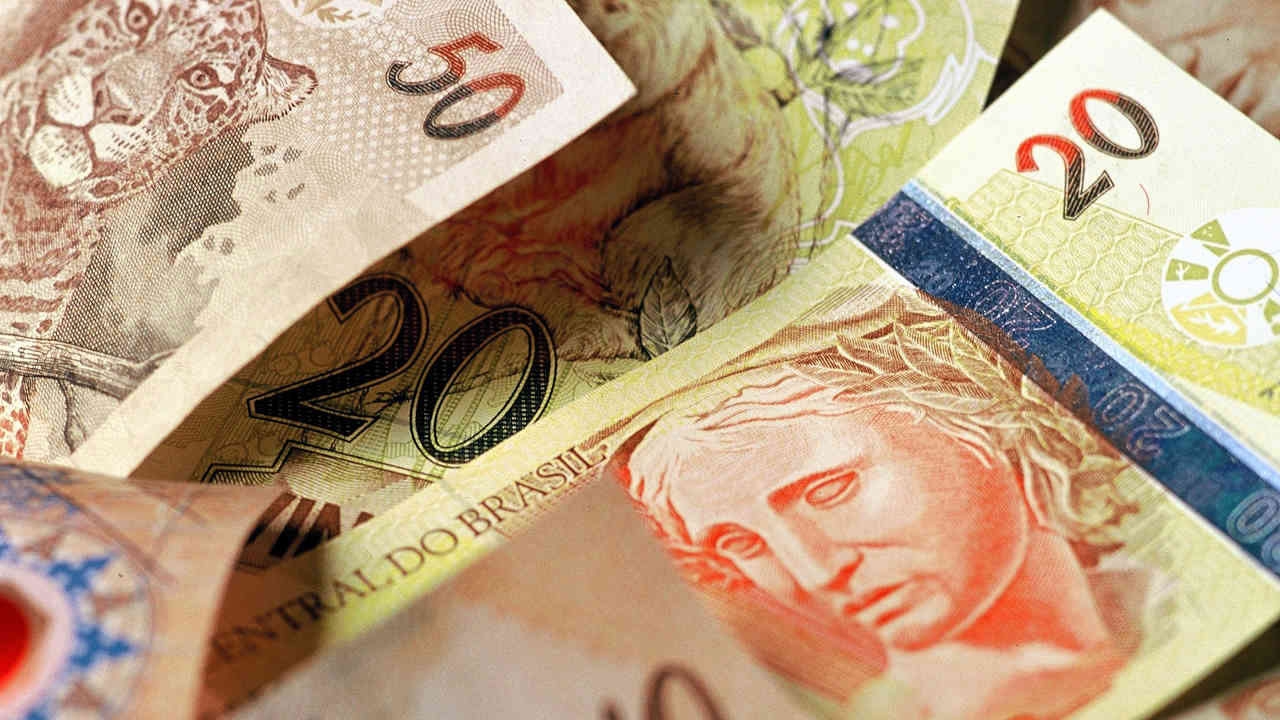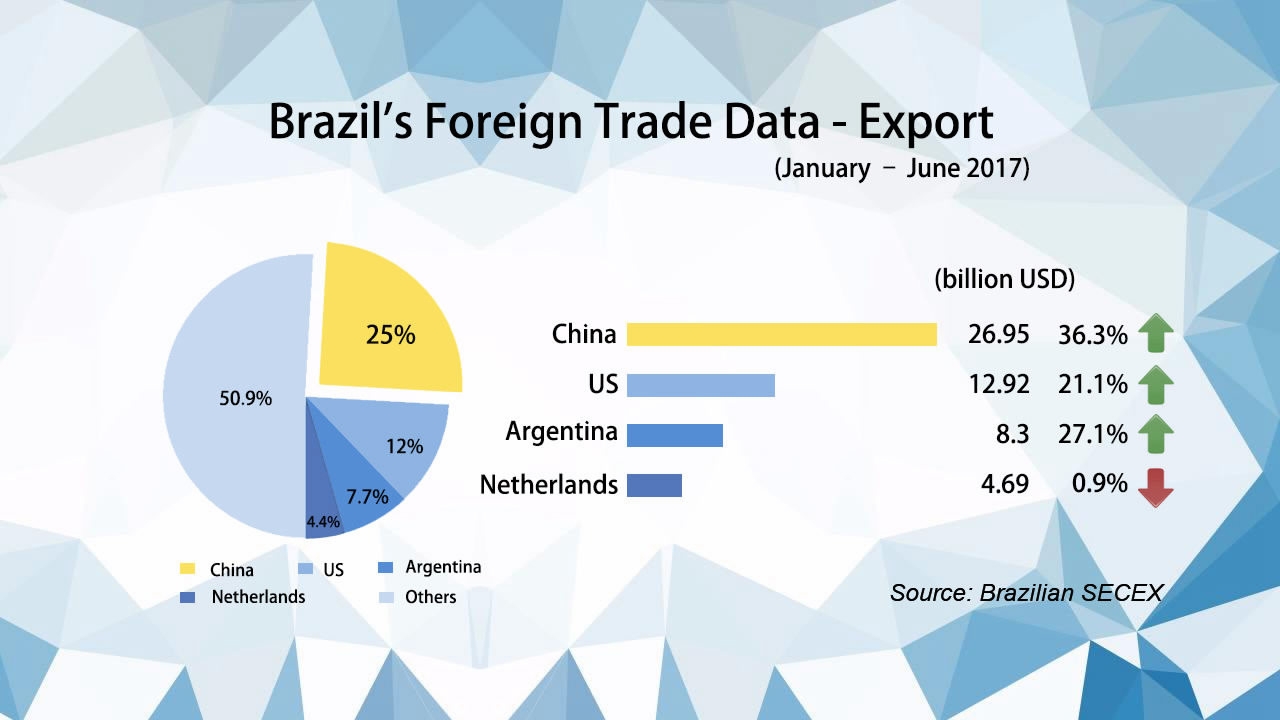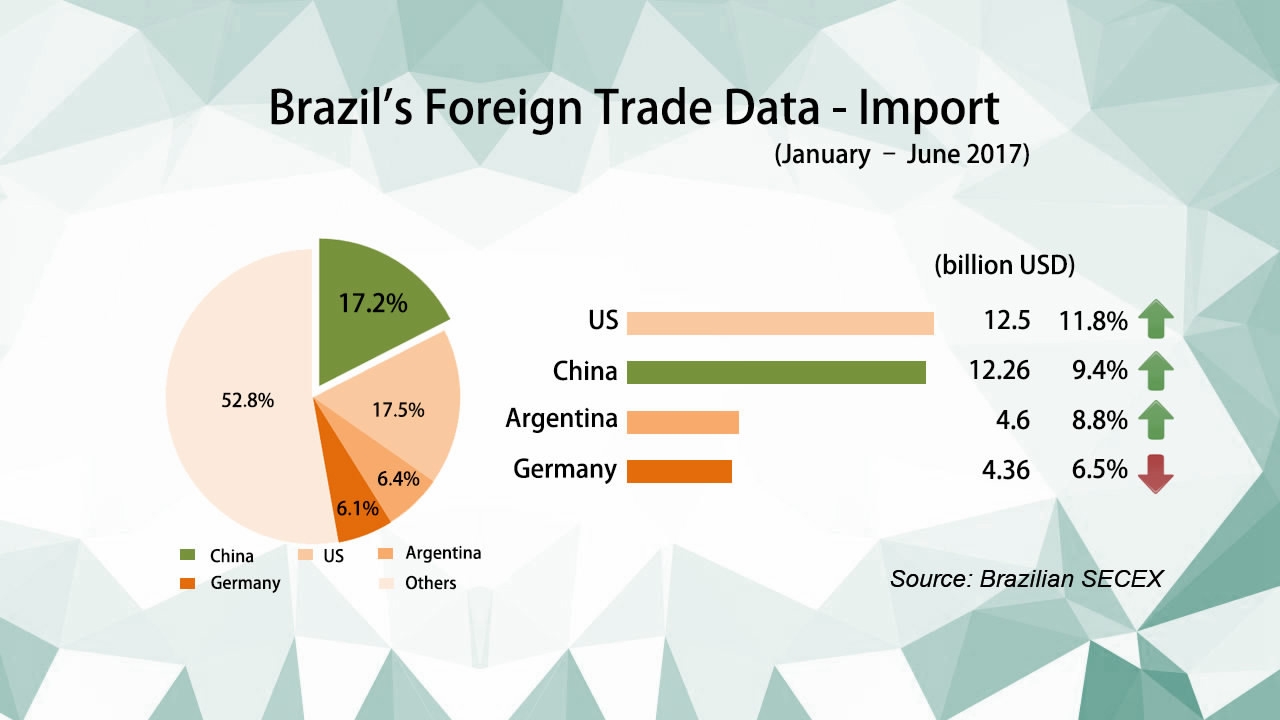
Business
17:53, 29-Aug-2017
BRICS cooperation: Tech sector the latest focus in China-Brazil partnership
By CGTN’s Wang Yue

Brazil was the first Latin American nation to foster a comprehensive strategic partnership with China. With the BRICS Summit coming, the relationship between these two major developing economies and members of the bloc comes into focus.
China is Brazil's leading trade partner, with eye-catching foreign trade data in the past few years. Brazil imported 12.26 billion US dollars’ worth of goods from China in the first half of 2017, up 9.4 percent from last year. That accounted for 17.2 percent of total imports, only behind the US, according to the Brazilian Secretariat of Foreign Trade (SECEX) under Brazil’s Ministry of Development, Industry and Foreign Trade.
China was also the biggest importer of Brazilian goods in the first half, accounting for 25 percent of the total exports. Brazil exported 26.95 billion US dollars’ worth of goods to China, up 36.3 percent year on year, showed the SECEX data.

CGTN Photo
CGTN Photo

CGTN Photo
CGTN Photo
Service trade
But the strong commodity-based trading relationship is not the end. The two countries signed a memorandum of understanding, or the Two-Year Action Plan, early this month to upgrade their commerce structure from commodity and goods exchanges.
A Brazilian analyst majoring in the technology sector, Diego Vinícius Martins, told CGTN that the plan would enrich bilateral trade ties, if China “is really willing to improve the cooperation”.
“China is responsible for the growth in the [BRICS] group. If China is really willing to improve the cooperation between two countries, China is going to achieve that,” Martins said.

Diego Vinicius Martins, a Brazilian analyst /CGTN Photo
Diego Vinicius Martins, a Brazilian analyst /CGTN Photo
It is not only the two governments seeing economic opportunities, but also business sectors have been showing a strong interest in Brazil. Chinese companies invested 8.39 billion US dollars in Brazil last year, an increase of 13 percent year on year, according to the Ministry of Commerce.
Chinese search giant Baidu launched a support and mentoring scheme for Brazilian tech startups last year. And ALIExpress, the branch of Chinese e-commerce guru Alibaba focusing on e-commerce overseas has already targeted Brazil as one of the major markets.
Therefore, Martins believes the tech sector will be the major focus point for Chinese investment in Brazil.
“Brazil is a big market,” he said. “And [Chinese tech companies such as Baidu are] bringing Brazilian companies to China, to find money, to attract Chinese companies investing in Brazil. So technology will be the hot sector for Chinese investment in Brazil.”

SITEMAP
Copyright © 2018 CGTN. Beijing ICP prepared NO.16065310-3
Copyright © 2018 CGTN. Beijing ICP prepared NO.16065310-3